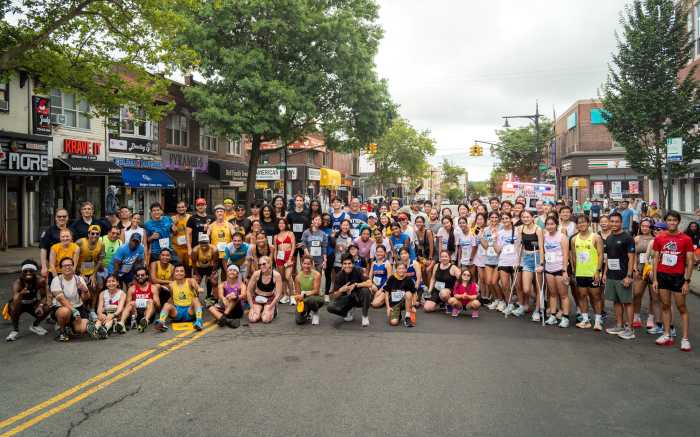By Mary Reinholz
The freshly remodeled Gristedes supermarket on 25 University Place has expanded its space, adding new sections for beer, hot food, a salad bar, bakery and organic products, all looking like crowd-pleasers beneath Thanksgiving decorations strung above the aisles.
But cigarettes are no longer on sale here — seemingly a sign of the times in this upscale Greenwich Village neighborhood near New York University.
“We haven’t had them for some time now,” said an assistant manager who identified himself only as Thomas. He noted that cigarettes are available at other Gristedes stores in New York (about 20 still carry them), even though he believes the demand is down. The main reason for the decline in tobacco sales, another Gristedes manager said, is that “people know where they can get them elsewhere” for half the price that conventional retailers in New York charge — upward of $95 per carton, with $4.25 in state and city taxes tacked on.
He was alluding to untaxed tobacco sold on Indian reservations, a subject that has bedeviled convenience-store operators and New York governors from Cuomo to Paterson.
Led by its Greek-born owner and C.E.O., John Catsimatidis, a longtime New York City mayoral wannabe who smokes an occasional cigar, Gristedes Foods Inc. has claimed in protracted litigation that Indian merchants on two Eastern Long Island reservations are luring away New York customers, and even helping to fund organized crime gangs and terrorist groups like Hezbollah with bulk sales, a charge some politicians dismiss as absurd but others solemnly repeat.
“I’ve read articles [quoting] the F.B.I.,” mused the well-connected mogul, speaking on the telephone from his 11th Ave. headquarters. “And I think there is some evidence.”
In 2006, Gristedes Foods filed a much-ballyhooed civil lawsuit against the state-recognized Unkechaug Nation in suburban Mastic and the Shinnecock tribe in Southampton, contending Indian merchants were engaged in racketeering, allegedly selling cheap cigarettes in massive amounts to bootleggers who resold them on the city’s black market. A Brooklyn federal judge tossed that charge last year.
Early in October, U.S District Court Judge Kiyo Matsumoto granted a motion by the Unkechaugs to dismiss Gristedes’s complaint against the tribe and its chief for deceitful cigarette advertising on grounds of sovereign immunity. But Judge Matsumoto allowed Gristedes the option of continuing its litigation against Unkechaug Chief Harry Wallace and his smoke shop in their “individual” capacities.
“We haven’t been scalped yet,” Catsimatidis joked to The Villager. Catsimatidis (rhymes with Gristedes), who grew up in New York, said he would “love” to have the chain join the city’s lawsuit against some 14 Unkechaug vendors. The city’s suit was announced with considerable fanfare last year by fellow billionaire Mayor Mike Bloomberg, a fervent smoking foe, who Catsimatidis said “talked” to him about the city’s Unkechaug case before it was filed. But the judge turned down Gristedes’s application to join the suit earlier this month.
Despite this triple whammy from the courts, Catsimatidis, 61, said he had no plans to discontinue his costly litigation against the Indian vendors.
“I’m disappointed because the city and us are on the same wavelength and it would save duplication,” he said.” But right now, we plan to continue our litigation. I don’t know the strategies the city is using or even our own lawyers are using,” he added when informed that the city did not name Harry Wallace or his smoke shop in its complaint. “But between the city and the state, there has been $800 million in lost tax revenues from overall Indian sales across the state,” he said.
Howard Kleinhendler, one of Gristedes’s lead lawyers at the Manhattan firm of Wachtel & Masyr, said the supermarket chain would be seeking damages of at least $20 million in lost cigarette sales to tribal vendors.
“Our position is that the smoke shops are selling cigarettes to our customers on tribal lands and at a rate that nobody can compete with,” he said. “Our lawsuit is for past losses. Judge Matsumoto dismissed our case against the tribe on grounds that they are entitled to sovereign immunity. But Harry Wallace and his smoke shops aren’t [entitled]. We’re going after him because we think he’s selling cigarettes without taxes, against state and federal laws. We’re going to take depositions, get documents and determine the scope of his involvement in his individual capacity.”
“Good luck with that,” retorted Chief Wallace, who is also a lawyer. “His sole claim is that I advertised falsely. There is no C.C.T.A. [Counterfeit Cigarette Trafficking Act] because that charge was tossed out. He has to show that what I sold affected his business directly 65 miles away. In addition, the sovereignty of the Nation can’t be ignored. I may still be in the case, but the other retailers he is trying to name still have the right to bring a motion to dismiss based upon sovereignty, and that will have to be litigated as to those businesses. The Gristedes case is effectively over.”
Wallace claims that Catsimatidis is pursuing the litigation as a political ploy to obtain an endorsement from Bloomberg if he runs for mayor in 2013, calling him a Bloomberg “surrogate.” Wallace believes both men are intent on putting Indian smoke shops out of business, a charge that Catsimatidis, a Democrat turned Republican, denies.
“I don’t want to close them down,” he said. “But I think they have to pay some taxes. There have been proposals in various other states that [tribal vendors] can pay less, but they should pay something. I think that would be a compromise position.”
In 2008, Catsimatidis, who has been a financial contributor to both political parties, formed an exploratory committee to consider running for mayor in the Republican primary, offering standard G.O.P. vote-getting staples, like lower taxes and reduced government red tape. But he removed himself as a possible contender when Bloomberg decided to run for a third time after prodding the City Council to overturn term limits in 2009.
When asked, Catsimatidis said he will consider running in 2013 if Bloomberg doesn’t go for a fourth term, claiming he “admires” the mayor’s performance and wants to continue keeping New York a “great world capital.”
Although Catsimatidis is clearly a long shot for the job, the portly businessman sounded like a seasoned pol as he talked about healthcare reform, claiming that if the bill passed by the House of Representatives gets through the Senate, then there will be “payback in the next election.”
Asked who he voted for in the last election, Catsimatidis said, “I’m a [Hillary] Clinton person, but I pray for Obama’s success.” He adds he was also part of the Clinton Foundation “and know some of the wonderful things Bill Clinton did on obesity.”
Catsimatidis — who also owns Jefferson Market on Sixth Ave. — admitted to worrying about his own heft, noting he weighs in at 250 pounds.
“I’m too short for my weight” — 5 feet 11 inches. “But I try to eat egg white omelets and I haven’t had steak once since January.”
Since he cares so much about health, why does he sell any cigarettes at his grocery stores?
“There is such a thing as freedom of choice,” the mogul replied. “I lecture my wife, who smokes, and tell her, Why don’t you just have one or two instead of more? It’s like what the Greek philosophers say: Everything in moderation.”





























